Sandra Brewster Roots

In her outdoor photographic installation Roots, Toronto-based artist Sandra Brewster explores the long history of Black presence in the urban wilderness. Developed during her tenure as Koerner Artist in Residence at Evergreen Brick Works, the photographs document the area’s plant life, greeting visitors as they explore the valley.
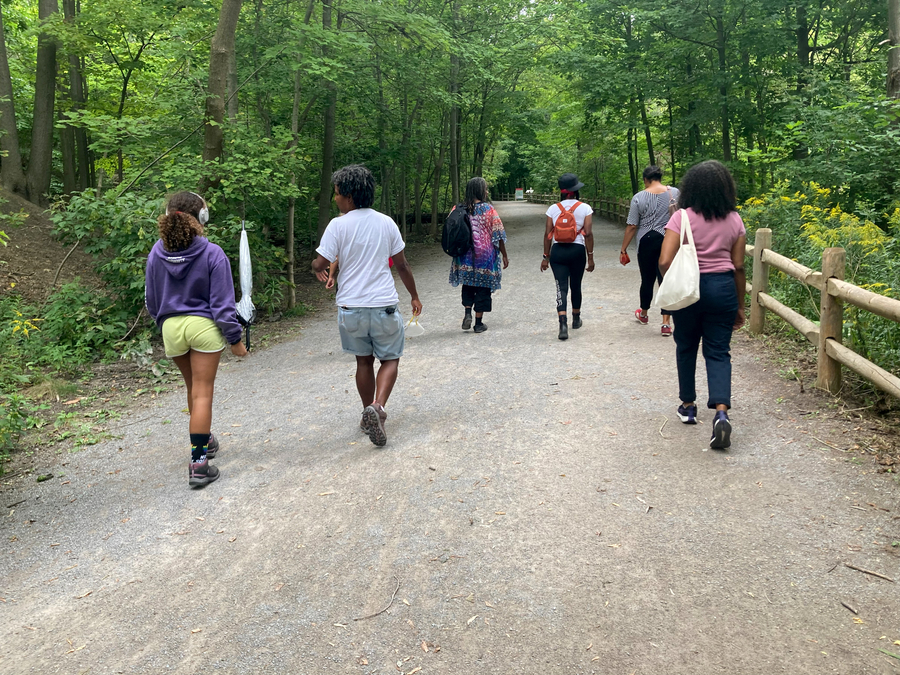
Like friendly spectral entities, Brewster’s photographs guide viewers through these outdoor spaces, hovering above and enmeshing with the plant life of the expansive green space. This experience echoes that of the walks the artist took with activist, scholar, and founder of Black Outdoors, Jacqueline L. Scott, as they travelled along the Don River in preparatory research for Roots. This project animates the roots of Brewster’s Caribbean Canadian diasporic narrative and speaks more broadly to Black histories on this land. What constitutes multitudinous Black experiences in the Canadian wilderness? Building upon one of her significant earlier works—Hiking Black Creek (2018), which depicts her parents as they explore Toronto’s Black Creek ravines—Brewster connects Canada and Guyana, Toronto’s forests and the Amazonian jungle, offering new perspectives on ideas of home and belonging while contributing to rich histories of the Black diaspora in the land now called Canada.
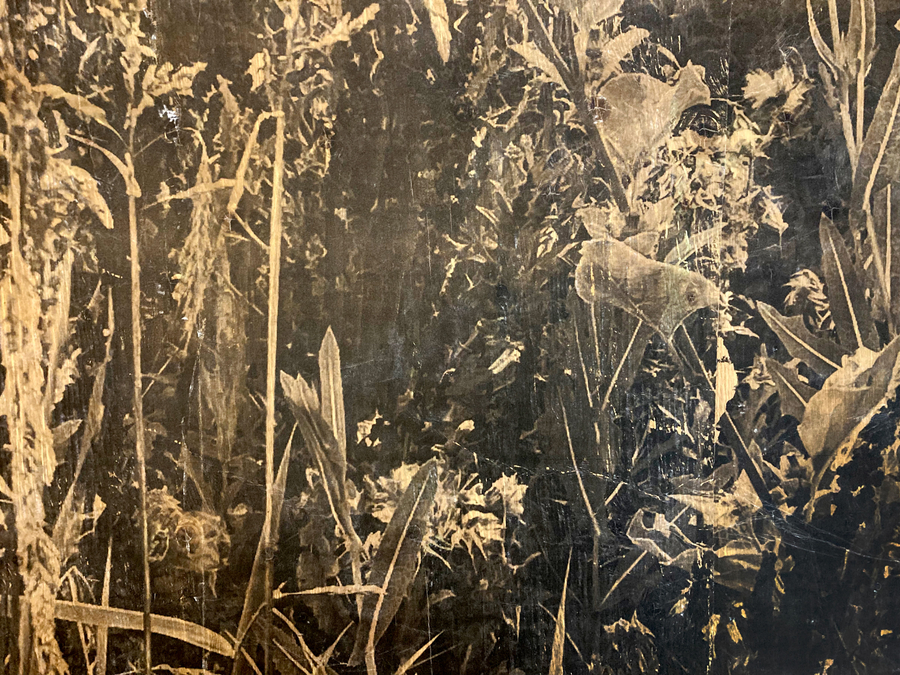
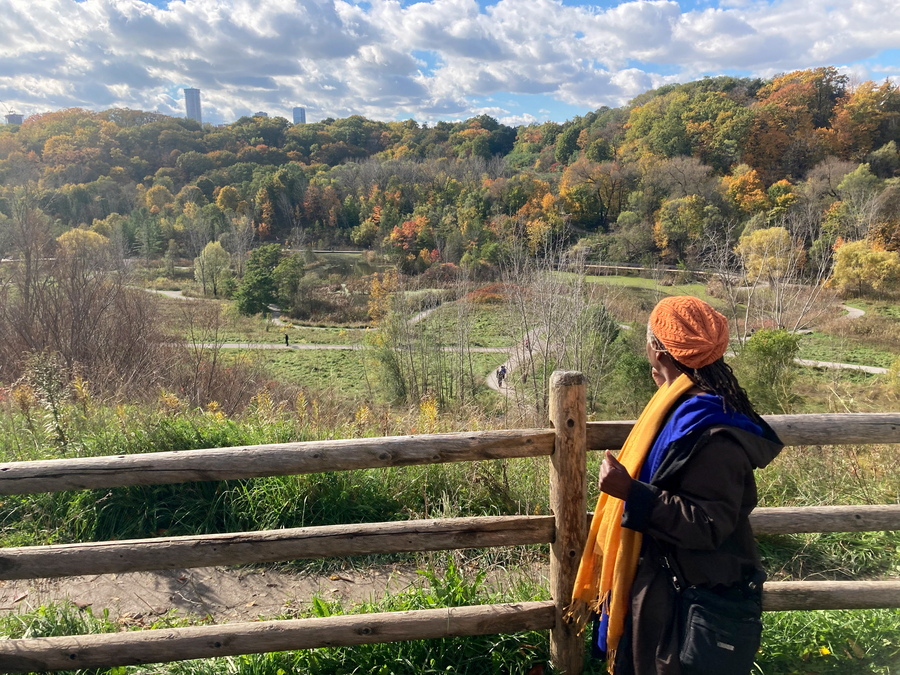
Brewster’s photographs chart movement and migration toward and across lands complicated by histories of unceded territories—in Toronto/Tkaronto, of the Wyandot, Haudenosaunee, and Anishnaabek Confederacies—and of enslavement. What have these lands and waterways of the Don Valley seen in their time? Nature’s inherent beauty is paired with the terror of colonialist and capitalist extraction—difficult histories that make imprints on the Brick Works site today. In the reparative work of reconciliation, it is necessary to view and contend with all of these histories of the land.

Brewster’s evocative imagery shifts between presence and absence, being and becoming, moving forward and receding. Her process of applying the images through a manual gel-transfer technique leaves behind small, fragmented, papery bits that stick to their wooden panel supports, while other parts of the photographs have worn away. The areas that remain refuse to take leave in the transfer process, resolutely staying behind. Her process is not unlike memory, in this sense. Once life is made into a memory, the distance between past and present widens, becoming less distinct across generations and geographies. The layers of Brewster’s works peel back like an onion; their sepia tones steeped in time, their temporality mirroring life. As a record of a specific moment, Roots captures nature’s continual state of change. The photographs function as meditations on materiality, the interconnectedness of the ecosystem, and the humanity that lies within it.
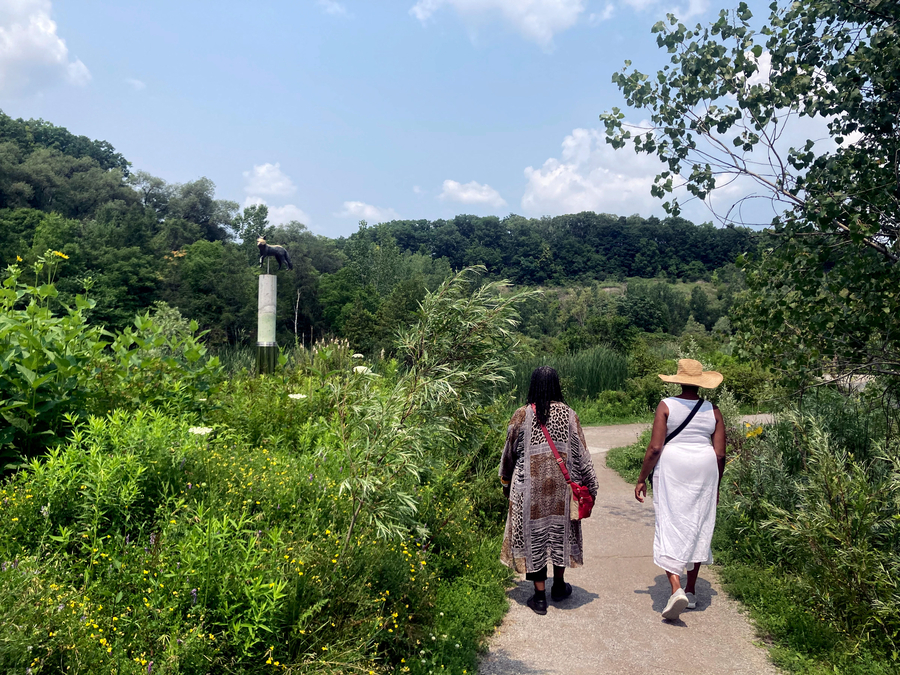
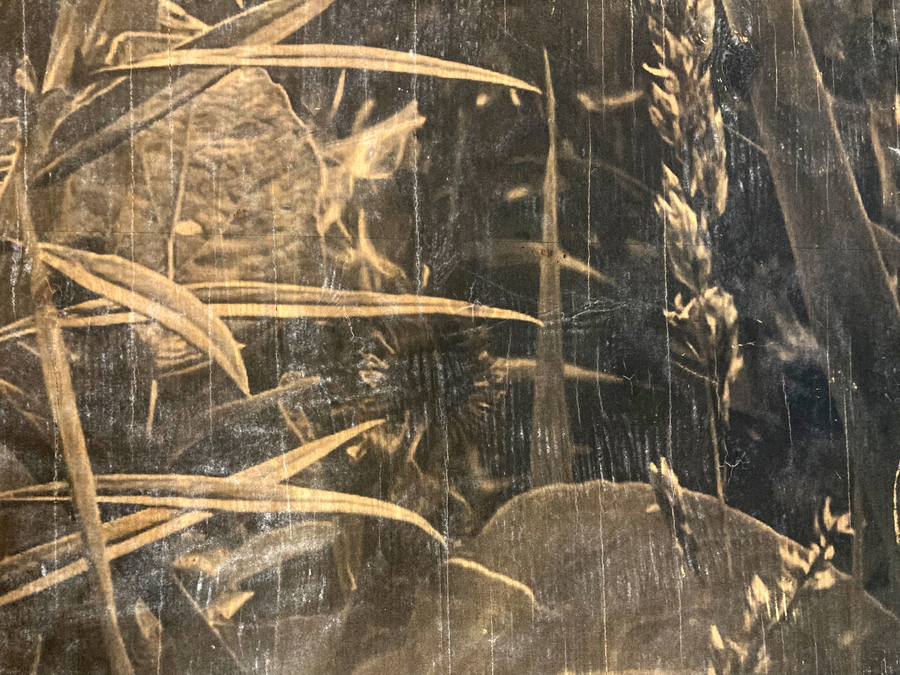
Roots is an inherently collective effort, developed alongside research on Black experiences in Toronto’s ravine lands in collaboration with Scott, an advocate for Black people’s access and enjoyment of the outdoors. The collaborative nature of Brewster’s project brings together art, urban exploration, and Toronto’s Black histories and diasporas, highlighting the necessity establishing safe outdoor spaces in order to gather and build communities. Through sharing stories and knowledge, Brewster and Scott have generated a sense of togetherness through the vitality of outdoor activity, with nourishing effects. While “recreation” means “to refresh through enjoyable exercise,” the term can also signify self-renewal through communing with the wilderness. To be among others, collectively experiencing the curiosities and joys of the outdoors, offers restorative potential and the opportunity to forge future memories, as nature and community heal together.
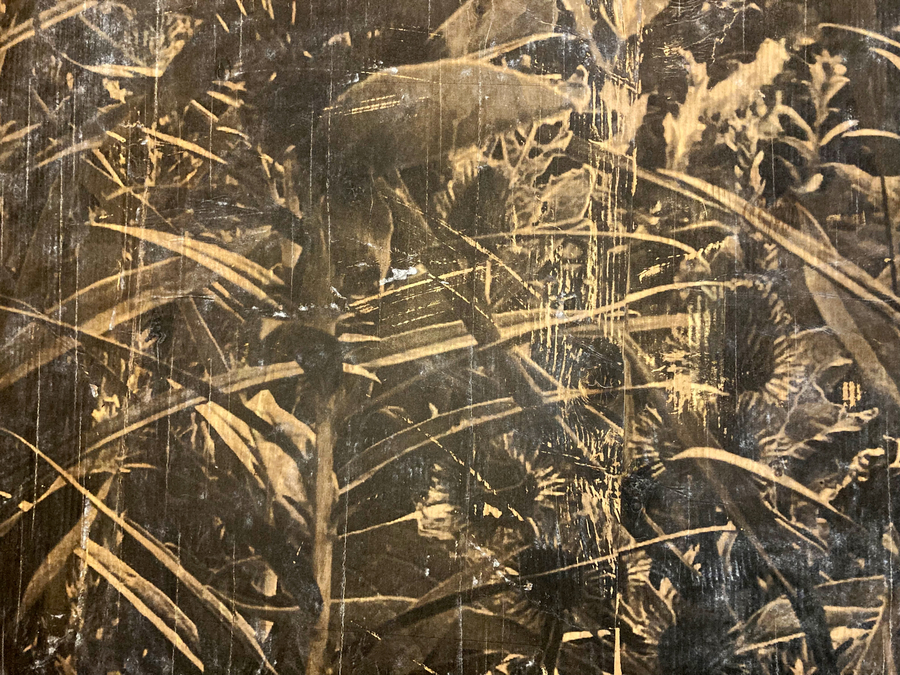
Curated by Kari Cwynar and Charlene K. Lau
Presented in partnership with Evergreen Brick Works. Part of ArtworxTO: Toronto's Year of Public Art 2021–2022
Sandra Brewster is a Canadian artist based in Toronto whose work employs a range of media to engage concepts of movement that express an internal relationship with identity, grounded in people of the Caribbean diaspora who maintain a relationship with “back home.” Born to Guyanese parents, Brewster is interested in a sense of being that is multi-layered, made up of a collision between geographies and temporalities. She expresses these complexities via the unfixed nature of her works’ materiality and presentation.